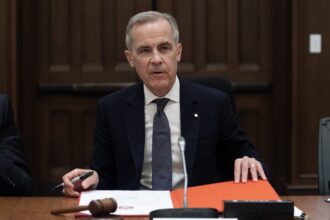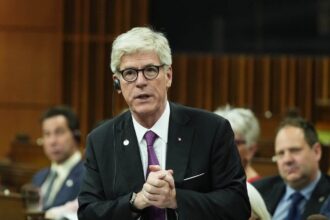In a critical summit that could redefine Canada’s economic trajectory, Deputy Prime Minister Chrystia Freeland convened with provincial and territorial trade ministers in Quebec City yesterday. The high-stakes meeting, held against a backdrop of mounting global trade tensions and domestic fiscal challenges, focused on forging a unified national trade strategy that balances regional interests with federal priorities.
“This isn’t just another routine gathering,” Freeland emphasized in her opening remarks. “The decisions we make today will determine Canada’s competitive position in a rapidly shifting global marketplace for years to come.”
The closed-door session at the historic Château Frontenac addressed several contentious issues that have strained federal-provincial relations in recent months. According to sources familiar with the discussions, interprovincial trade barriers topped the agenda, with estimates from the Bank of Canada suggesting these barriers cost the national economy approximately $90 billion annually—nearly 4% of GDP.
Alberta’s Trade Minister Hannah Johnson pressed particularly hard on energy corridor regulations, arguing that “outdated interprovincial restrictions are hampering our ability to get resources to market at a time when global demand is at a premium.” This position received notable support from Saskatchewan and Newfoundland representatives, creating an unexpected alliance across traditional political divides.
Quebec’s delegation, led by Minister Pierre Tremblay, countered with concerns about preserving provincial autonomy in key industries. “We recognize the importance of a cohesive national approach,” Tremblay stated, “but not at the expense of Quebec’s distinctive economic model and cultural industries.”
The federal government’s recent trade agreement with Indonesia also generated significant discussion, with Maritime provinces expressing concern about potential impacts on their fishing industries. Freeland assured ministers that safeguard mechanisms would protect vulnerable sectors while opening new markets for Canadian exports.
British Columbia’s minister raised pointed questions about the federal strategy for mitigating ongoing trade friction with China, which has particularly affected forestry and agricultural exports from western provinces. “We need concrete federal action, not just diplomatic rhetoric,” she asserted during a brief media availability.
The CO24 Business desk has learned that ministers also discussed a proposed innovation corridor stretching from Windsor to Quebec City, aimed at strengthening Canada’s advanced manufacturing capabilities. The initiative would include coordinated regulatory frameworks and shared infrastructure investments across multiple provinces.
Ontario Minister Michael Thompson highlighted the success of recent provincial regulatory harmonization efforts in the construction sector. “We’ve eliminated nearly 30% of cross-border certification requirements since 2023, creating thousands of jobs and reducing costs for businesses and consumers alike,” Thompson noted in data presented to colleagues.
Sources close to the talks indicate that a formal communiqué will be released later this week outlining specific commitments on reducing interprovincial trade barriers, coordinating international trade missions, and establishing a permanent federal-provincial working group on emerging market opportunities.
The timing of this summit is particularly significant as Canada navigates complex economic headwinds, including persistent inflation concerns, shifting U.S. trade policies, and intensifying competition for investment capital. According to CO24 Canada News analysis, provincial cooperation will be essential in addressing these challenges effectively.
As trade ministers departed Quebec City this afternoon, the question remains: Can this new spirit of federal-provincial cooperation translate into tangible economic benefits for Canadians across all regions, or will regional interests ultimately prevail over national strategic priorities?
















